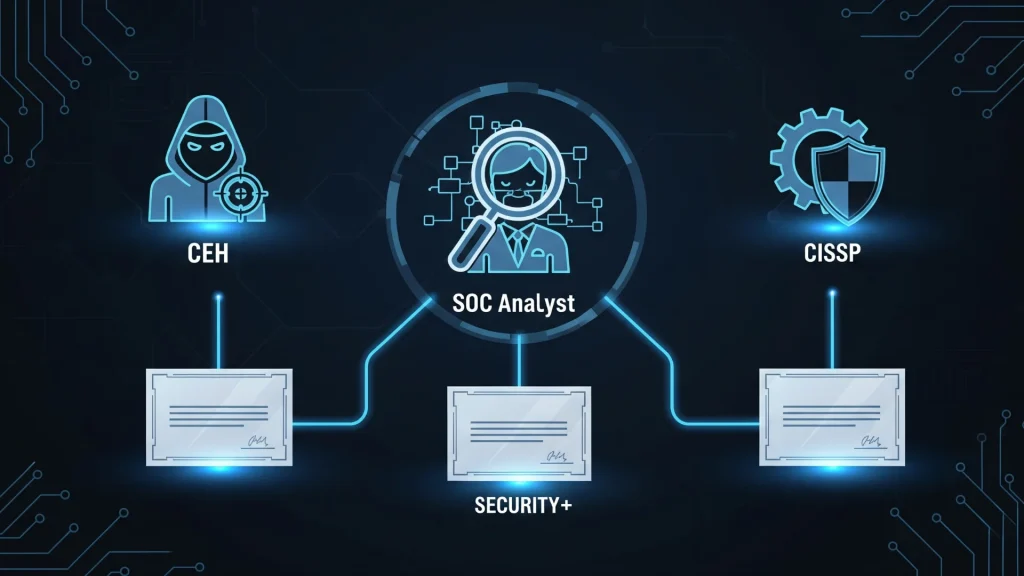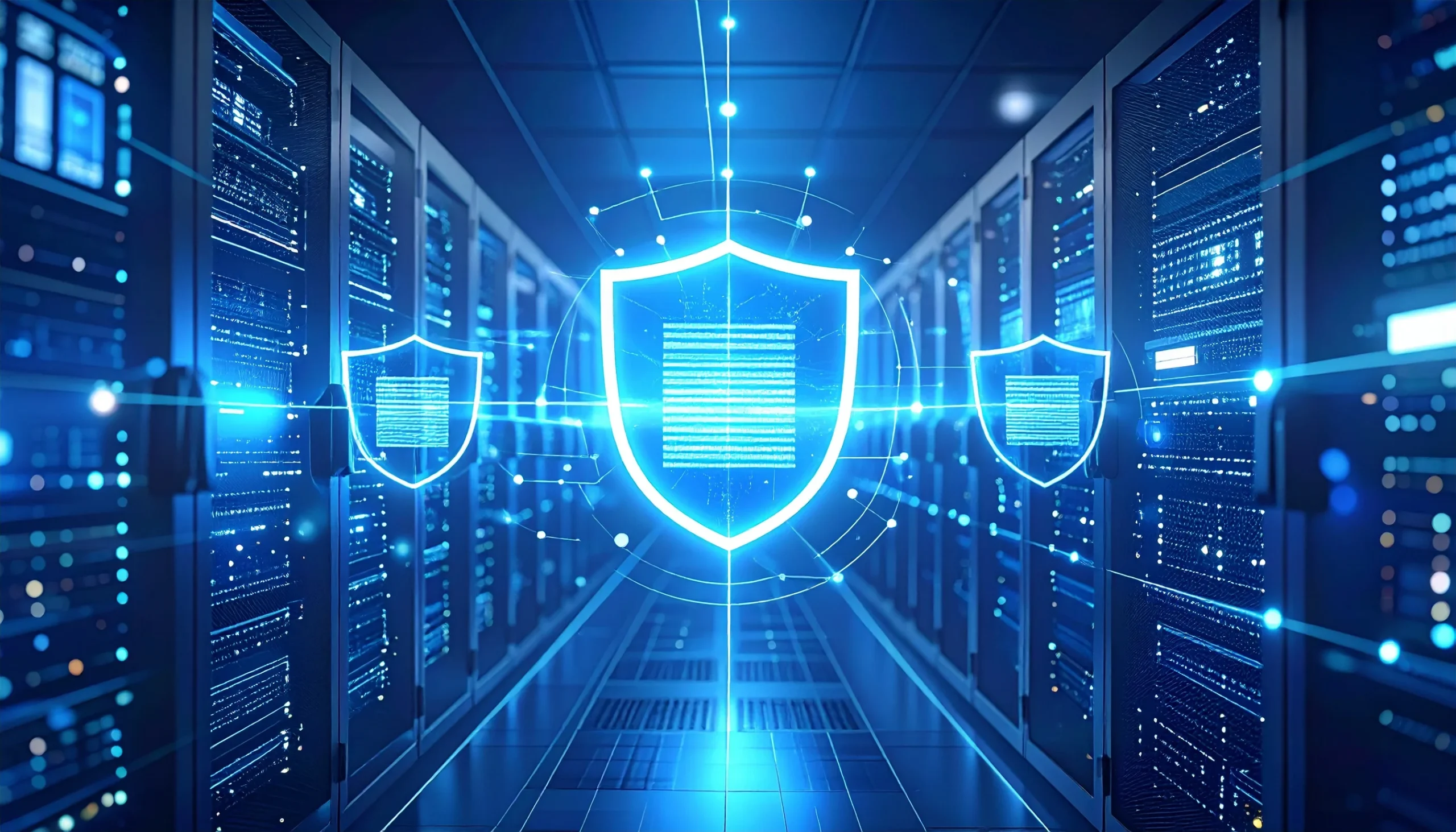Cybersecurity Certifications Top programs are becoming essential in today’s rapidly evolving digital landscape. With organizations facing constant threats from hackers, ransomware groups, and insider risks, the demand for qualified professionals has never been higher. Employers want proof that you have the right knowledge and skills to protect systems, networks, and data.
One of the most effective ways to showcase your expertise is through globally recognized Cybersecurity Certifications. These not only validate your technical skills but also demonstrate your commitment to continuous learning and professional growth.
Whether you’re a beginner or an experienced professional, certifications can help you stand out in a crowded job market. Let’s explore the most important certifications that employers really care about in 2025.
Why Certifications Matter in Cybersecurity

Unlike some IT fields where experience alone can be enough, cybersecurity often requires professionals to hold industry-standard Cybersecurity Certifications. Employers, especially in government and enterprise sectors, often list certifications as mandatory in job descriptions. For example, many compliance frameworks such as ISO 27001, GDPR, and NIST recommend certified professionals for audit and security roles.
The key reasons Cybersecurity Certifications choices matter are:
- Proven Knowledge: Certifications show you understand frameworks, methodologies, and tools.
- Employer Confidence: Recruiters trust credentials from recognized bodies like CompTIA, ISC², and EC-Council.
- Career Advancement: Higher salaries and promotions are often tied to certification achievements.
- Networking Opportunities: Certification communities allow you to connect with peers and industry leaders.
- Regulatory Requirements: Some roles in finance, healthcare, and defense legally require certified staff.
In short, certifications are not just pieces of paper—they are career accelerators.
Top Certifications by Role
Different cybersecurity career paths require different skills. Here are the Cybersecurity Certifications Top choices by role in 2025:

SOC: CompTIA Security+, CySA+
- CompTIA Security+: Often called the “gateway to cybersecurity,” Security+ is an entry-level Cybersecurity Certification that proves you know the basics of network defense, identity management, cryptography, and compliance. Employers use it as a screening tool for entry-level roles.
- CySA+ (Cybersecurity Analyst): A step up from Security+, CySA+ focuses on active defense and threat hunting. SOC analysts use these skills to monitor SIEM systems, detect suspicious activity, and respond to incidents.
Example: If you aim to work in a Security Operations Center (SOC), Security+ gets you hired, but CySA+ will likely get you promoted.
Ethical Hacking: CEH, OSCP
- CEH (Certified Ethical Hacker): This Cybersecurity Certifications teaches penetration testing tools and methodologies, from reconnaissance to post-exploitation. Employers value CEH because it provides a structured, vendor-neutral approach to ethical hacking.
- OSCP (Offensive Security Certified Professional): Known as one of the most challenging certifications, OSCP requires hands-on penetration testing in real-world lab environments. Unlike CEH, which focuses on theory and tools, OSCP proves you can break into systems under time pressure.
Example: If you’re applying to a penetration testing firm, CEH will get you noticed, but OSCP will convince employers you can deliver results.
Engineering: CISSP, CISM
- CISSP (Certified Information Systems Security Professional): Widely regarded as the “gold standard” in cybersecurity, CISSP is intended for senior professionals. It covers eight domains including security engineering, software development security, and risk management. Employers often require CISSP for roles like Security Architect, Chief Information Security Officer (CISO), or Lead Engineer.
- CISM (Certified Information Security Manager): While CISSP leans technical, CISM leans managerial. It validates skills in risk governance, policy development, and aligning security with business objectives.
Example: If you want to move from technical work into leadership, CISSP or CISM can help bridge that transition.
Cost and Difficulty Comparison

Not all certifications are created equal. Some are relatively affordable and beginner-friendly, while others require months of preparation, lab access, and thousands of dollars.
Here’s a detailed look at the cost and difficulty level of the Cybersecurity Certifications Top options:
| Certification | Cost Range | Difficulty | Time to Prepare | Ideal For |
| Security+ | $370–$400 | Beginner | 2–3 months | Newcomers entering cybersecurity |
| CySA+ | $390–$420 | Intermediate | 3–4 months | SOC Analysts and threat hunters |
| CEH | $1,200–$1,500 | Intermediate | 4–6 months | Ethical Hackers and Pen Testers |
| OSCP | $1,600+ (with labs) | Advanced | 6–12 months | Professional Pen Testers |
| CISSP | $749 | Advanced | 6–9 months | Security Engineers & Architects |
| CISM | $760 | Advanced | 6–9 months | Security Managers & Leaders |
Pro Tip: Don’t just choose based on cost. Think about your return on investment (ROI). For instance, while OSCP is expensive, professionals with this certification often command six-figure salaries
How to Choose the Right One for You
Choosing the right Cybersecurity Certifications depends on your career goals, current skill level, and budget.
- Beginners: Start with Security+. It builds a solid foundation and opens entry-level SOC roles.
- Mid-level professionals: If you already have experience, CySA+ or CEH can help you specialize in defense or offense.
- Experienced experts: CISSP and CISM are ideal for professionals aiming for leadership or architecture roles.
- Budget-conscious learners: Start with lower-cost certifications, then reinvest your salary gains into advanced programs.
Think of certifications as stepping stones: Security+ → CySA+ → CISSP, or CEH → OSCP. Your path depends on whether you want to defend, attack, or manage.
Frequently Asked Questions
Q1: Which Cybersecurity Certifications are best for beginners?
The CompTIA Security+ is the best starting point. It covers all the essentials—networks, cryptography, compliance, and incident response. Employers worldwide recognize it, making it the most practical entry-level credential.
Q2: Do I need multiple cybersecurity certifications?
It depends on your career stage. A single certification may get you started, but stacking certifications (like Security+ + CySA+ or CEH + OSCP) can accelerate promotions. For leadership roles, combining technical (CISSP) and managerial (CISM) certifications is powerful.
Q3: Are free Cybersecurity Certifications valid for jobs?
Free certifications (such as vendor-specific micro-courses) are great for learning, but most employers prioritize recognized certifications from CompTIA, EC-Council, or ISC². Free courses can enhance your resume, but they rarely replace paid, proctored certifications.
Q4: How long does it take to prepare for Cybersecurity Certifications?
Preparation time varies. Security+ may take 2–3 months, while OSCP can require up to a year. Your background, study habits, and access to labs will determine how fast you progress.
Q5: Do Cybersecurity Certifications guarantee a job?
No certification guarantees employment. However, certifications greatly improve your chances by signaling competence to employers and helping your resume pass automated HR filters. Pair certifications with hands-on practice for the best results.
Take the Next Step with Bilişim Academy
If you’re ready to kickstart or advance your cybersecurity career, don’t just stop at reading—start learning. At Bilişim Academy, our Cybersecurity Training Programs are designed to prepare you for the industry’s top certifications, from Security+ to CISSP.
Why Choose Bilişim Academy’s Cybersecurity Course?
- Hands-on labs that simulate real-world cyber threats
- Expert instructors with industry experience
- Certification-focused curriculum (CompTIA, CEH, CISSP, and more)
- Career guidance and job placement support
- Flexible online and in-person training options
Join Bilişim Academy’s Cybersecurity Course today
In collaboration with our trusted SEO and Media Planning partner, we are proud to deliver cybersecurity education supported by strategic digital expertise.




